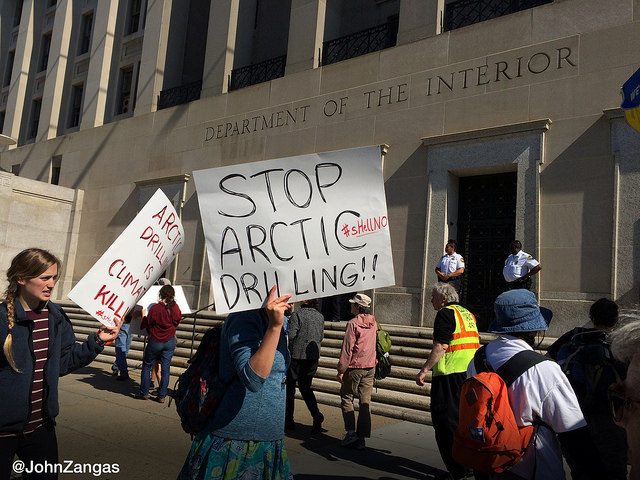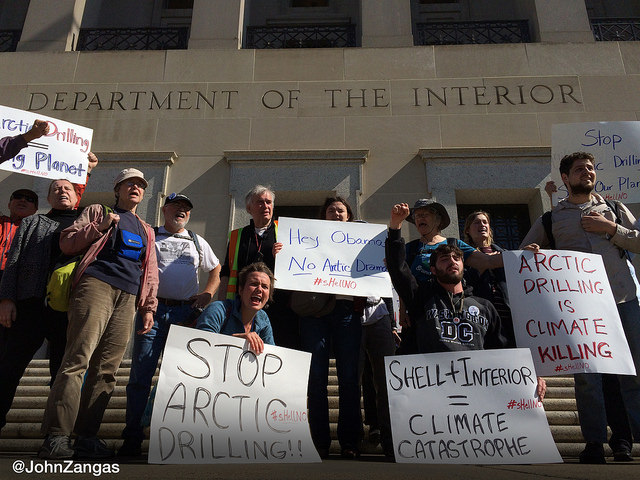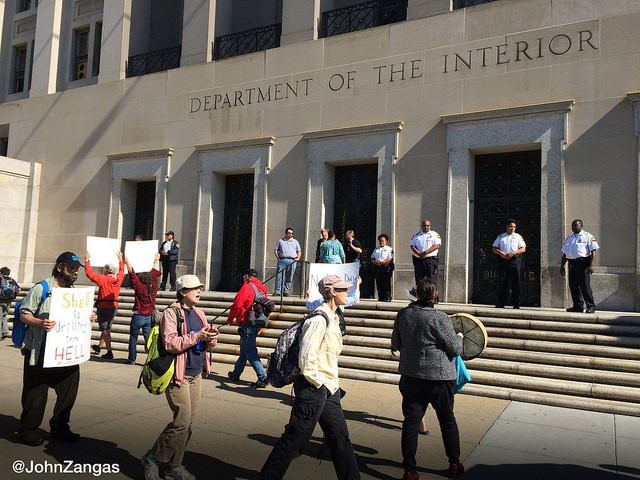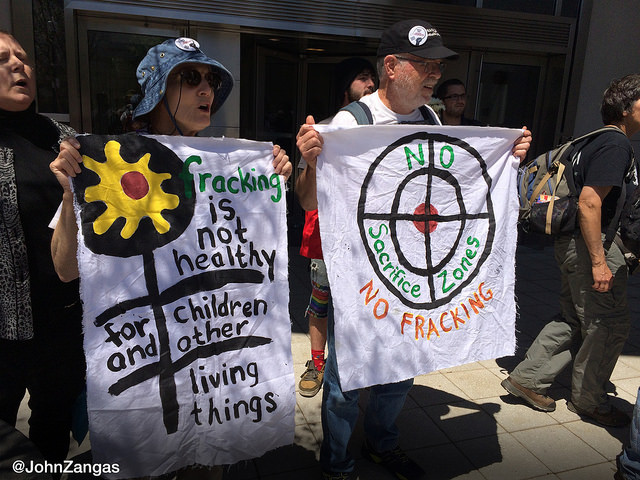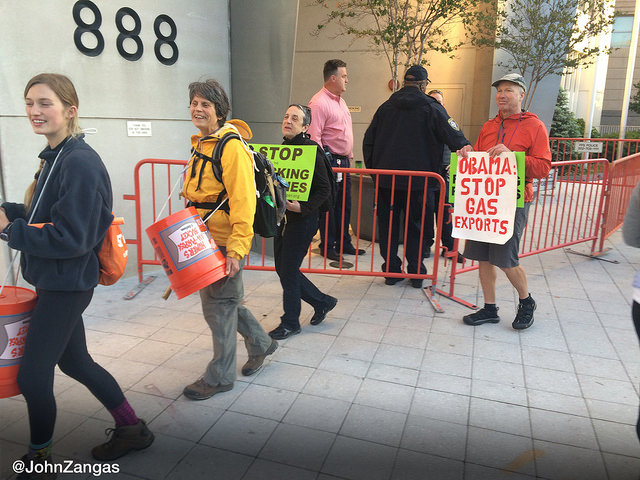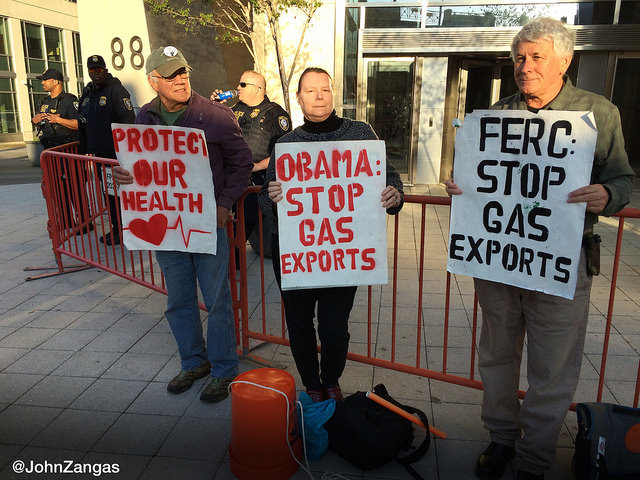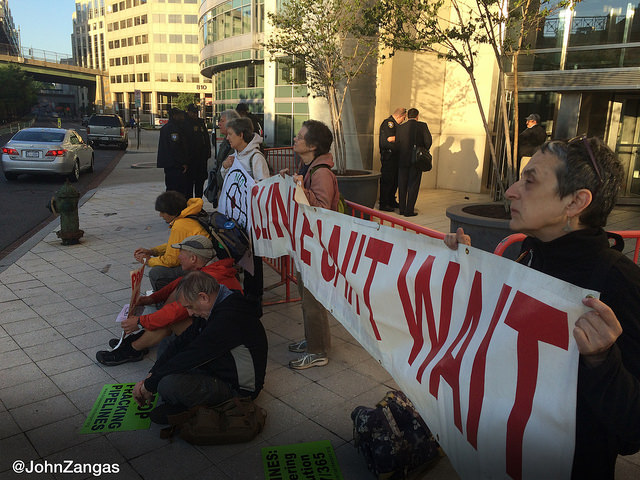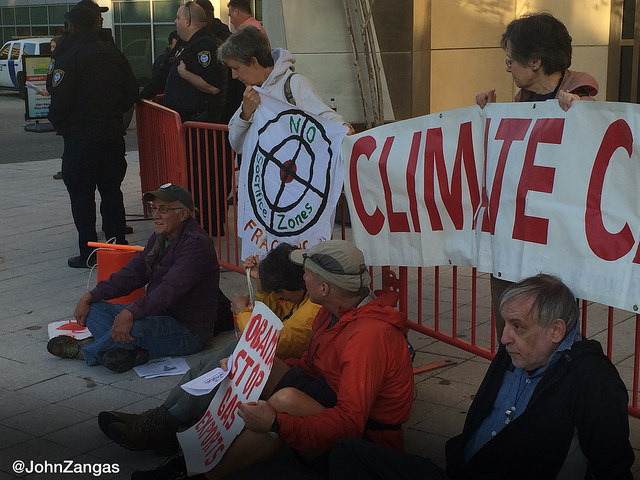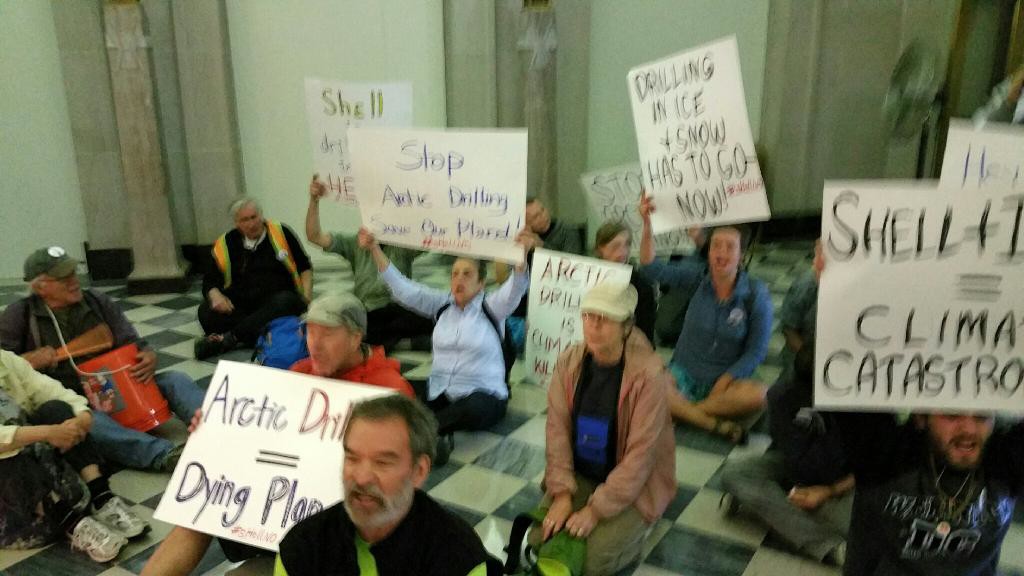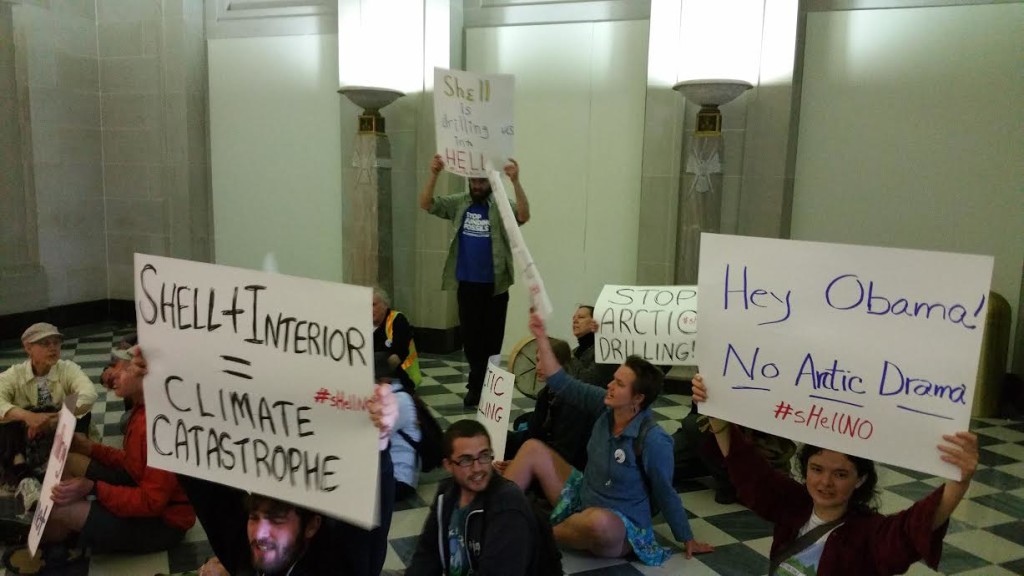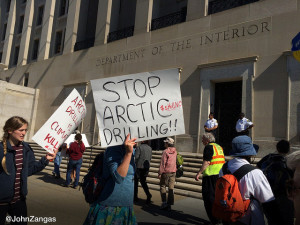
On day two of a series of protests called “FERCus,” activists played a cat-and-mouse game with police, starting out early in the morning at the Federal Energy Regulatory Commission, proceeding to the U.S. Department of the Interior and then returning to FERC by midday.
They began with an early morning sit-in at FERC as employees arrived at work. Later, they ducked into the Metro, confounding police who were closely following their movements.
They showed up an hour later at the Department of the Interior to protest Arctic drilling. (The Obama administration recently conditionally approved Shell Oil’s plan to drill in the Chukchi Sea off of Alaska’s North Slope.) Activists were ejected by security after occupying the lobby for several minutes.
From the Interior Department, they returned via Metro to FERC, by which time police had lost track of them. There they were able to cross barricades and block entrances while reciting names of communities affected by fracking and natural gas infrastructure. Employees looked down from windows and took pictures.
Ted Glick of Chesapeake Climate Action Network said Arctic drilling is very risky. A report produced by an agency of the Interior Department—the same one which approved Shell’s plan—gives a 75% chance of one or more oil spills occurring as a result of drilling in the Arctic over the next 77 years. In case of an accident or spill, cleanup and rescue workers at the nearest Coast Guard station would be 1,000 miles away.
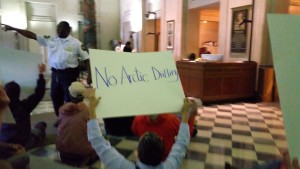
“There is definitely a problem with the Interior Department’s allowing the fossil fuel industry to use public lands to essentially enrich themselves,” Glick said.
He also said it is time for the Obama administration to understand that their energy policy is not moving towards renewable energy alternatives like they say it is.
“For them to continue this policy, the all-of-the-above energy policy, of oil and gas and coal, [while] at the same time they are supportive, somewhat, of wind and solar and renewables, is crazy. We have to get away from all-of-the-above to renewables.”
In an interview with Platts on May 20, Abigail Ross Harper, director of the Bureau of Ocean Energy Management (BOEM), defended the administration’s decision to allow Shell to drill in the Arctic this summer.
Shell had met all the requirements, she said, and there were no grounds to deny a permit. She also affirmed the Obama administration’s commitment to exploration in the Arctic. Arctic drilling, she said, would be beneficial for national security by diversifying sources of oil and gas, and increasing US energy supplies.
When Shell’s new oil rig, the Polar Pioneer, arrived at the Port of Seattle on May 14, it was greeted by a flotilla of kayaks and canoes. A couple of days later, the #ShellNo campaign had about 200 boats surrounding the rig for the “Paddle in Seattle.”
But in the opinion of FERCus activists, U.S. energy policy is helping Big Oil and Gas to exploit resources for profit while global climate destabilizes and communities suffer.
The FERCus protests resume next Tuesday after a weekend of building props and civil disobedience training.
- FERCus Activists protest Interior Dept Artctic drilling permits
- 1960s Ecology messages to FERC
- Picketing FERC for day 2 of FERCus
- Outside FERC at sunrise Day 2
- Sit-in at FERC “Climate Can’t Wait”
- BXE Activists blocked FERC at 6 am
- Photo by Beyond Extreme Energy
- Photo By Beyond Extreme Energy

